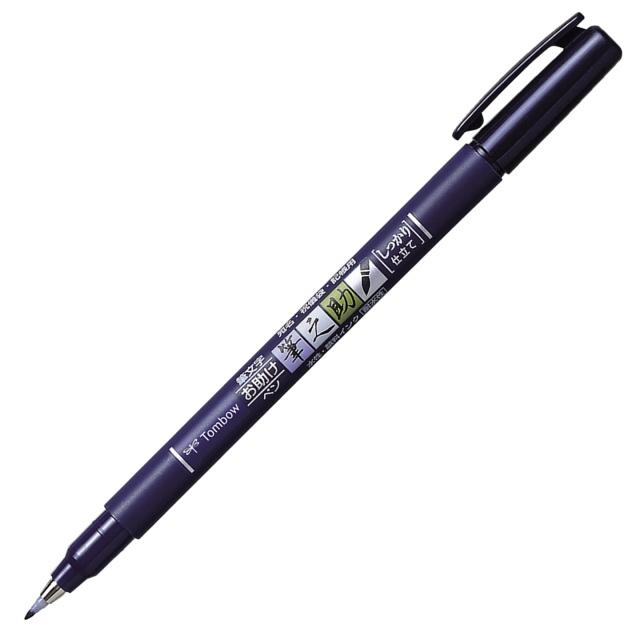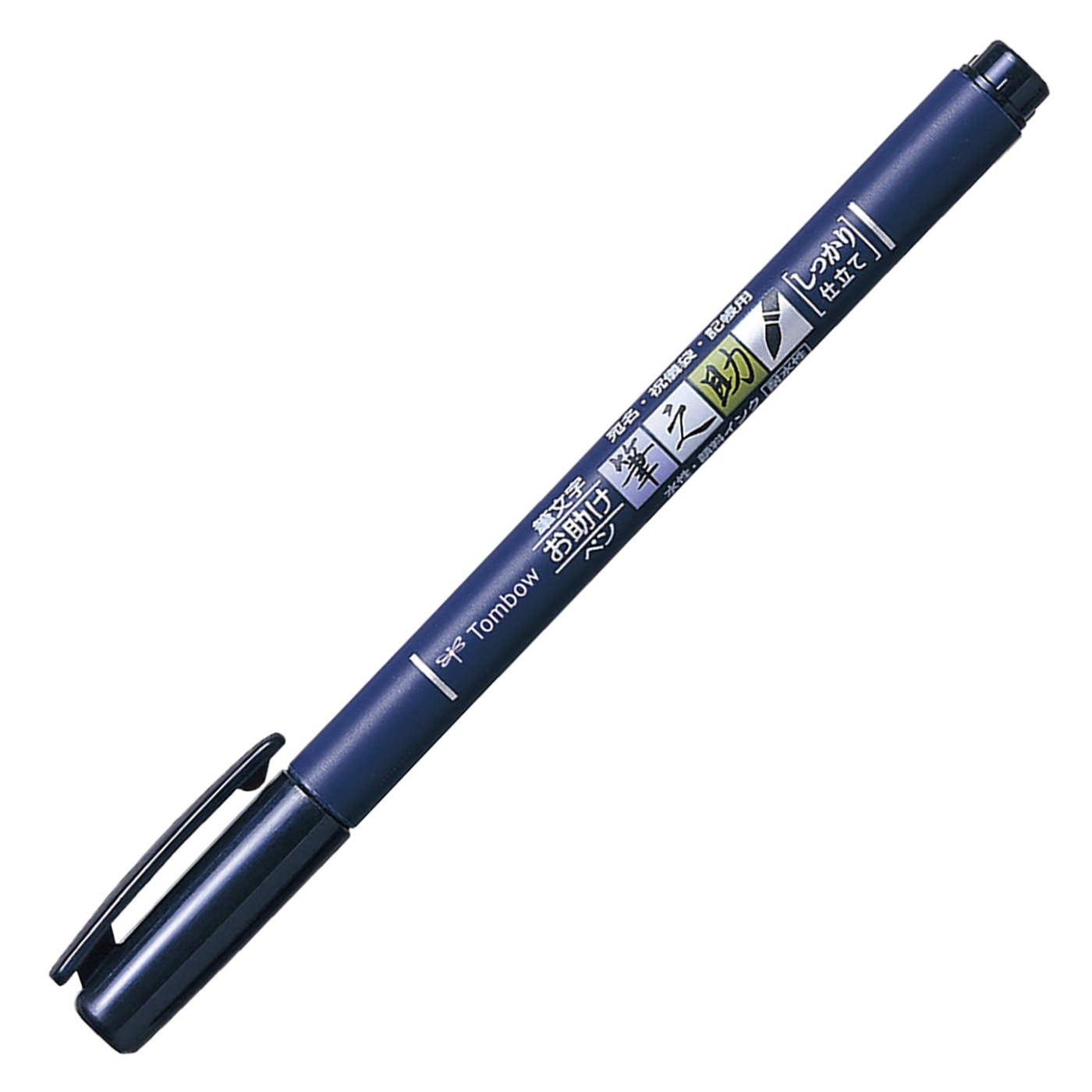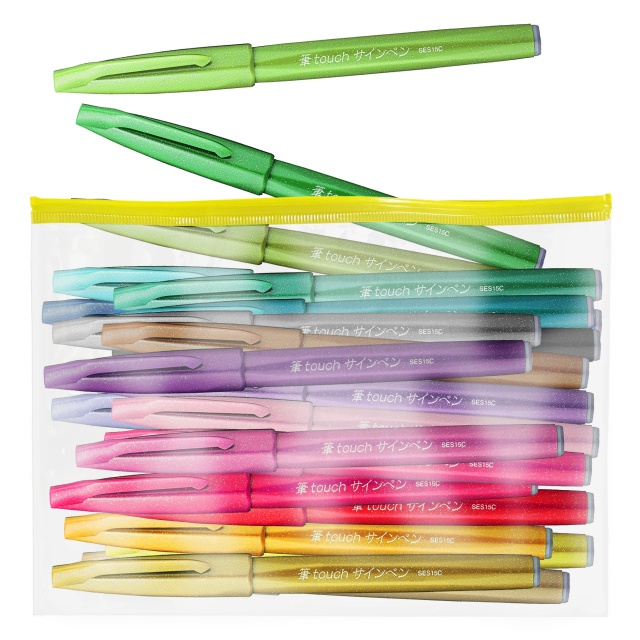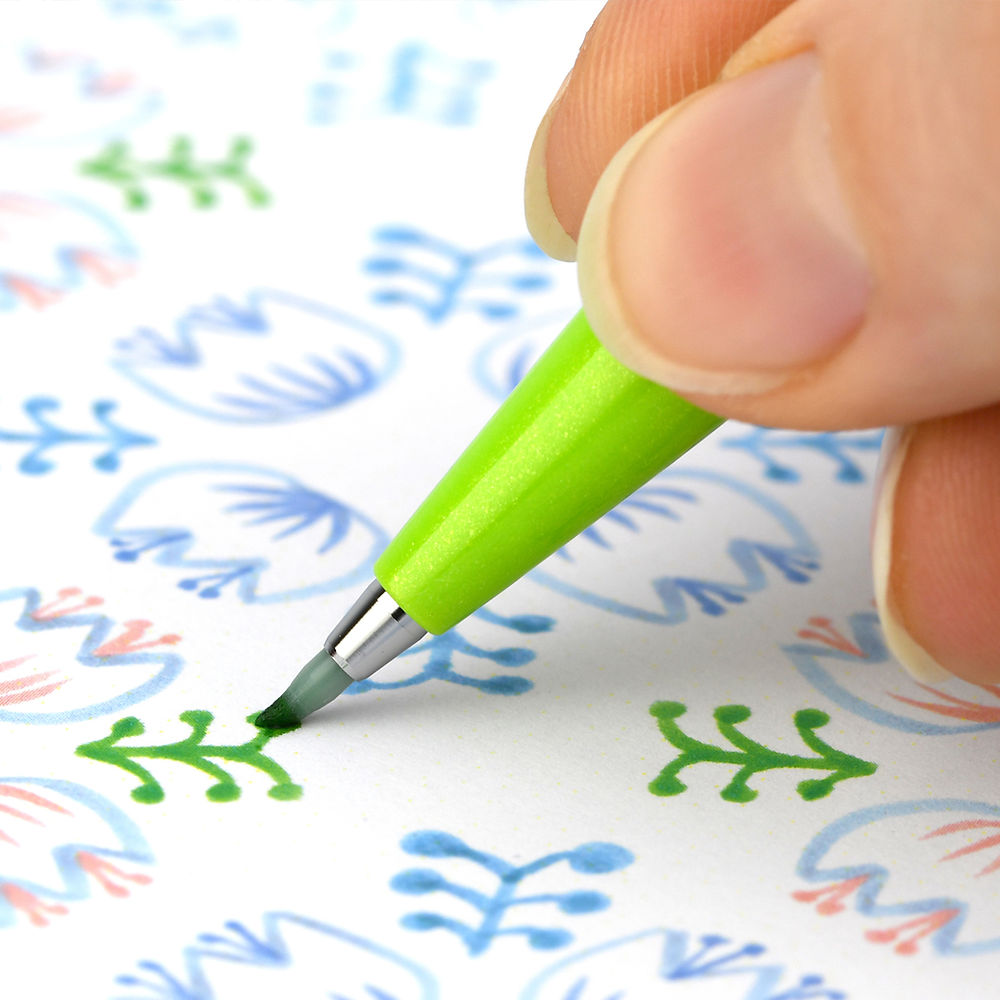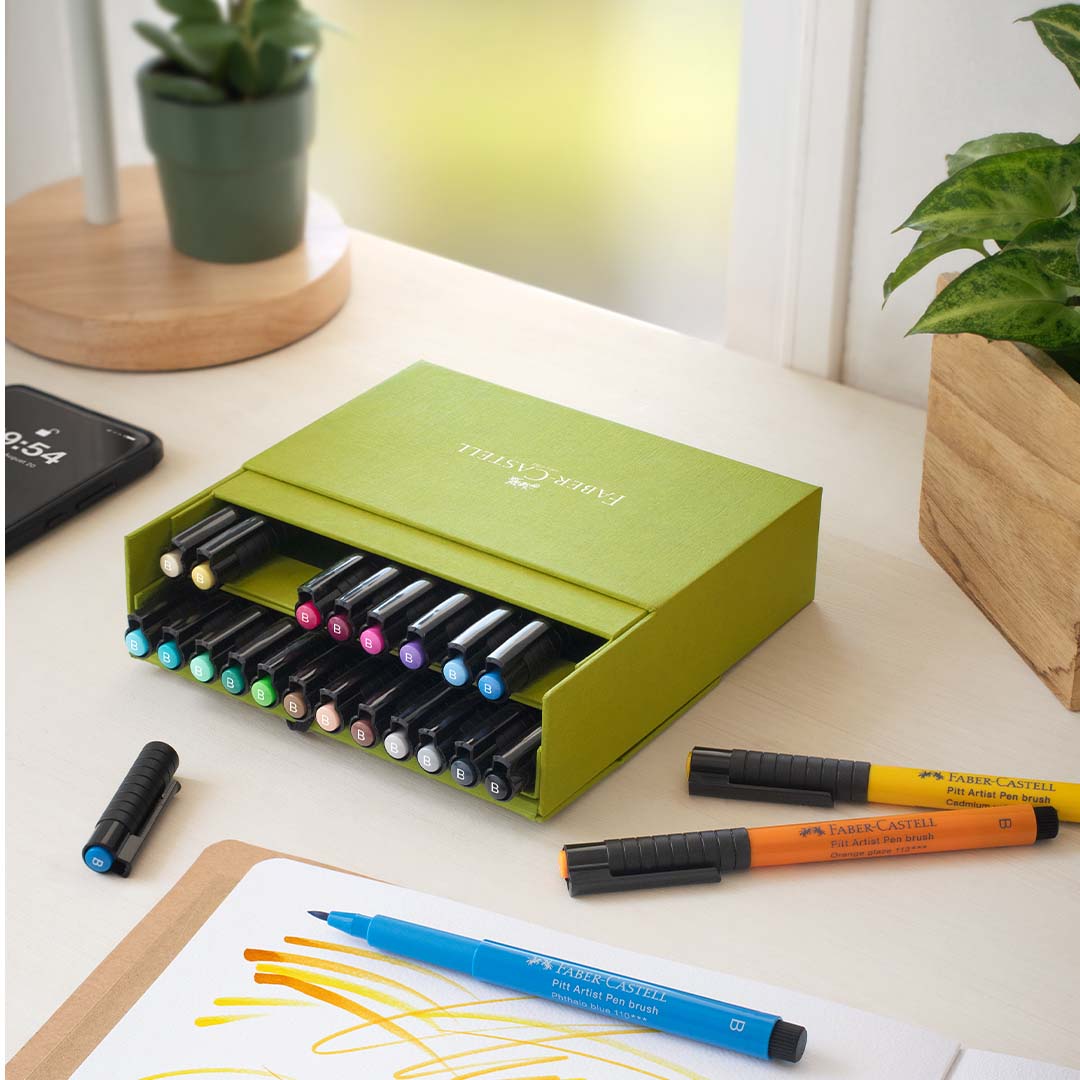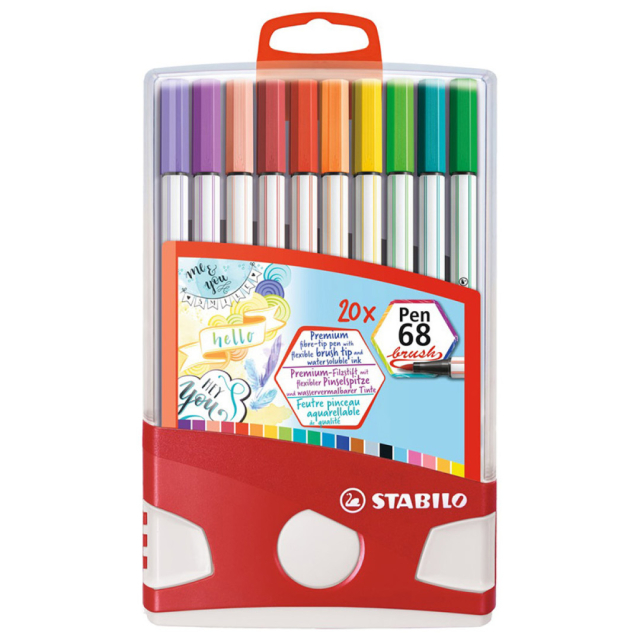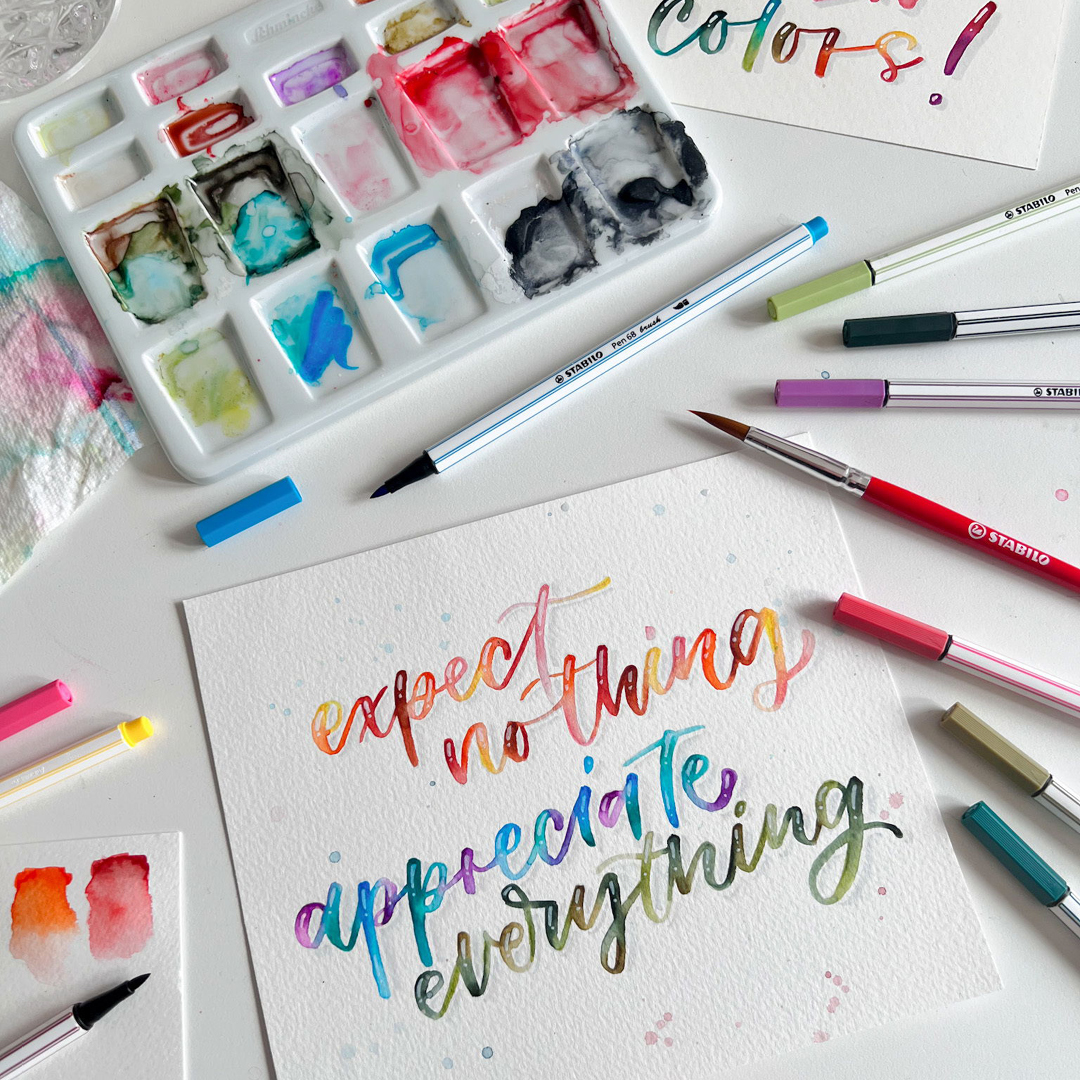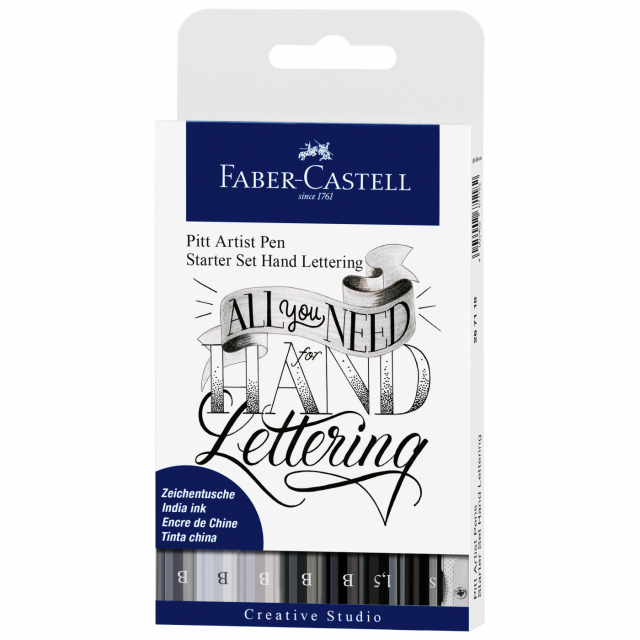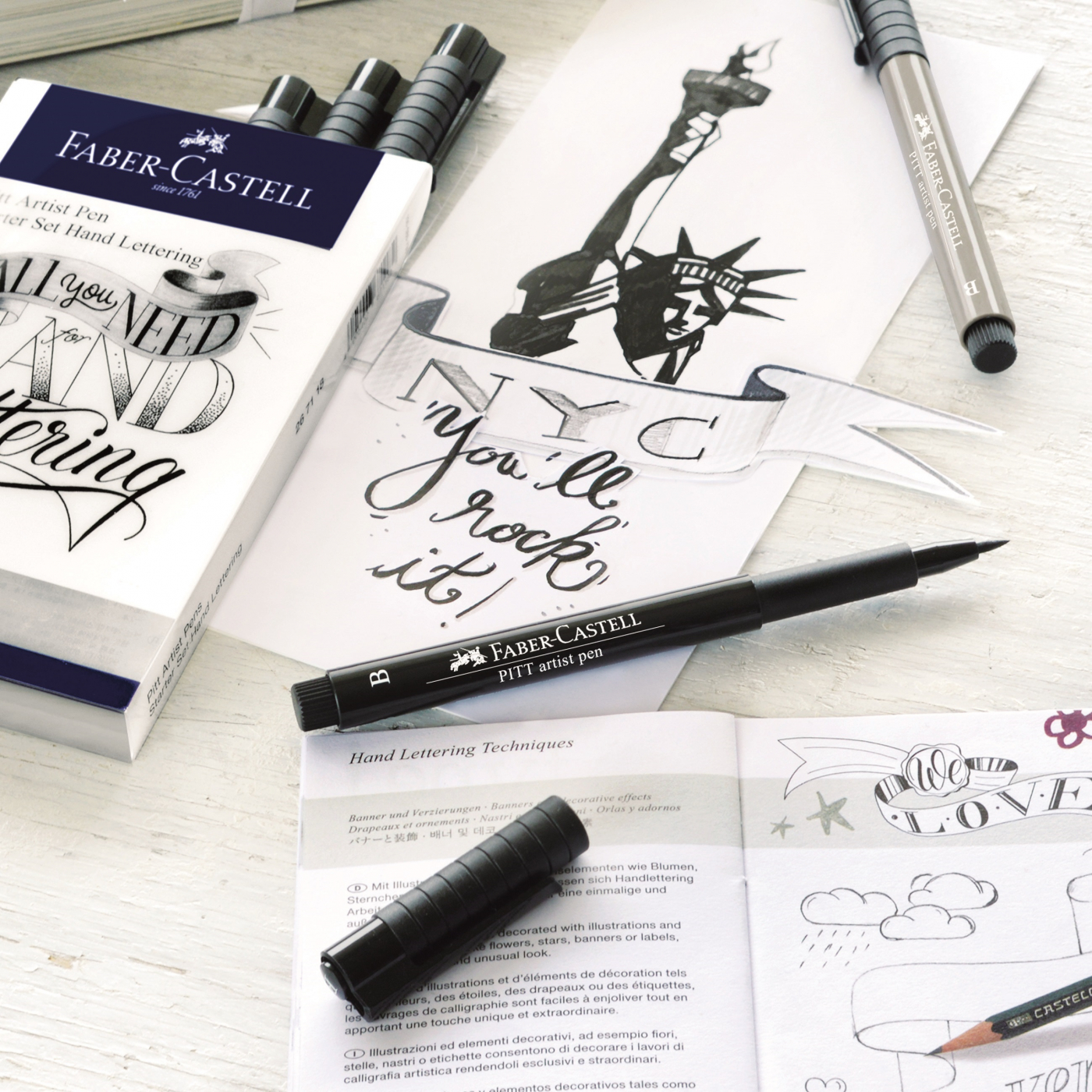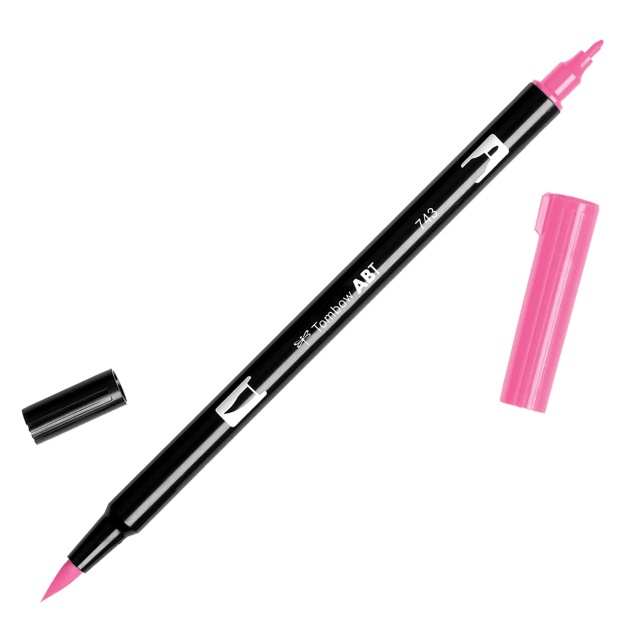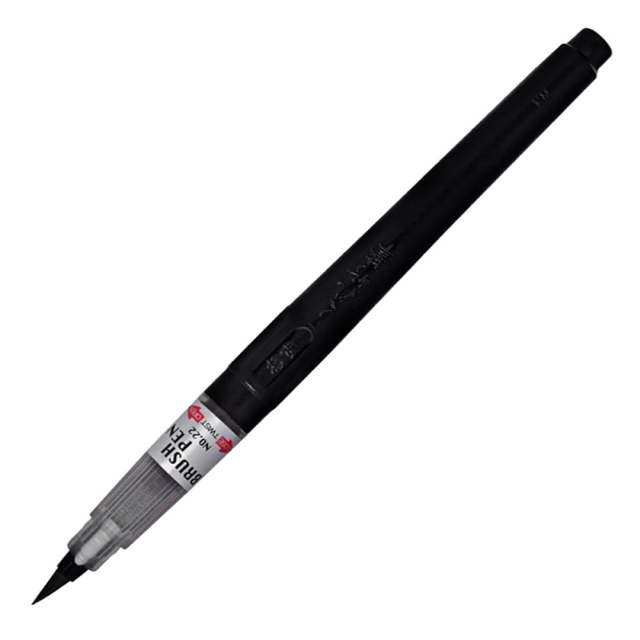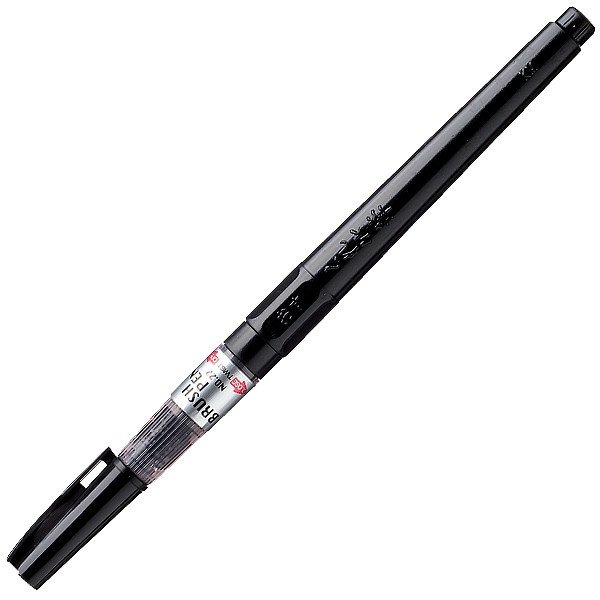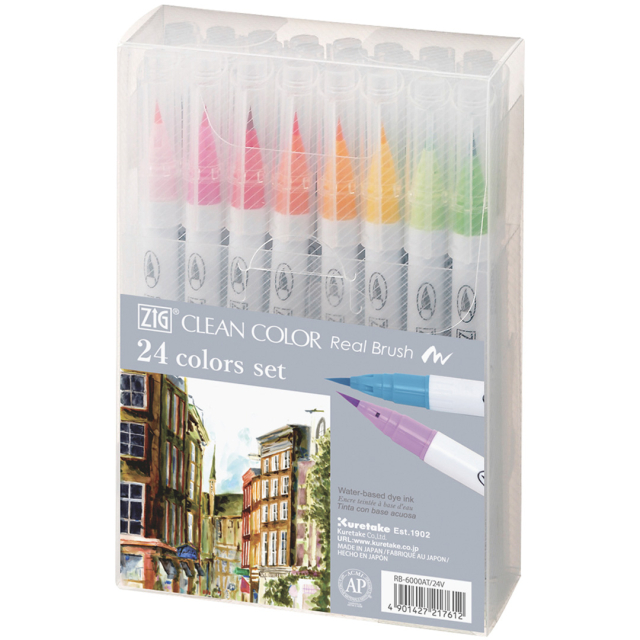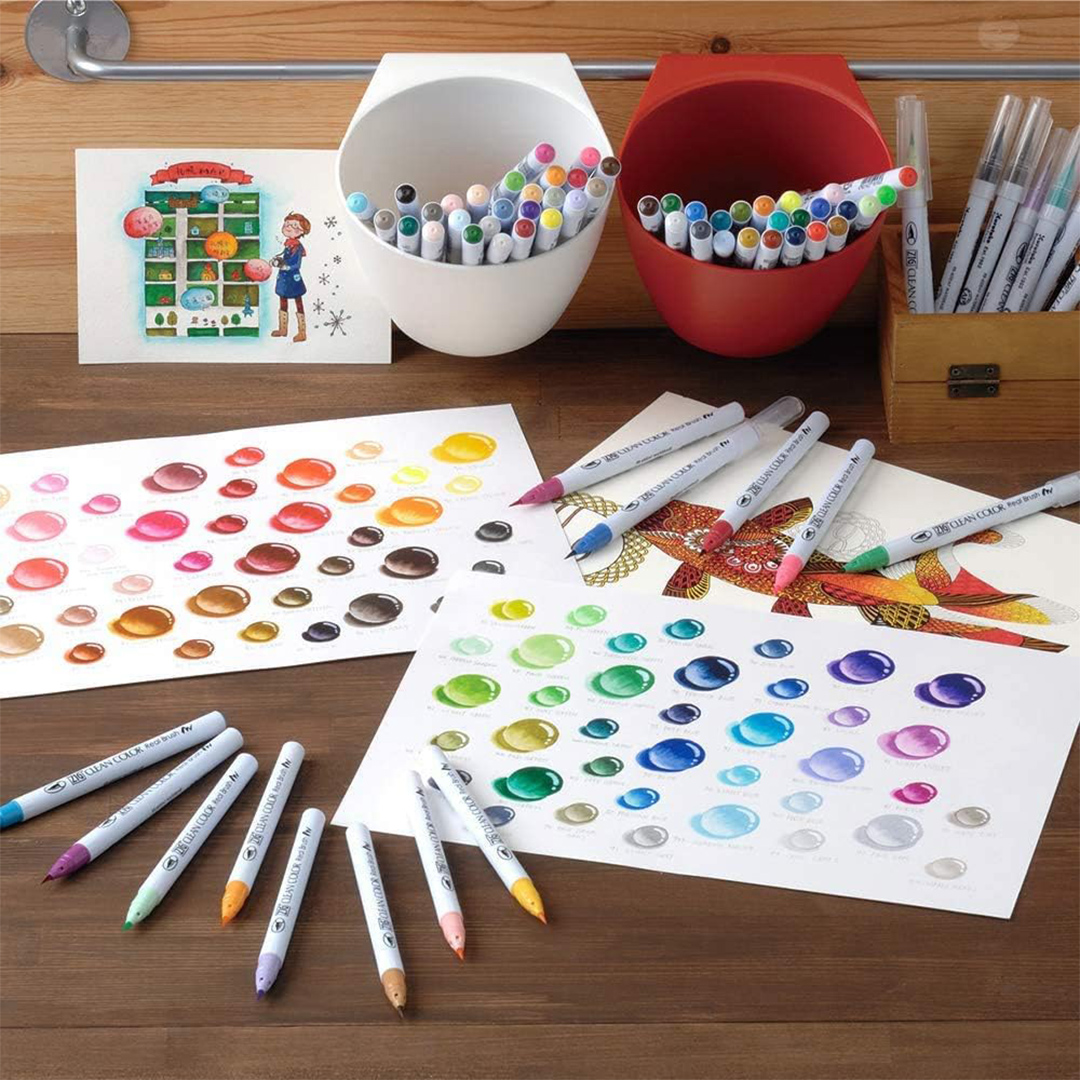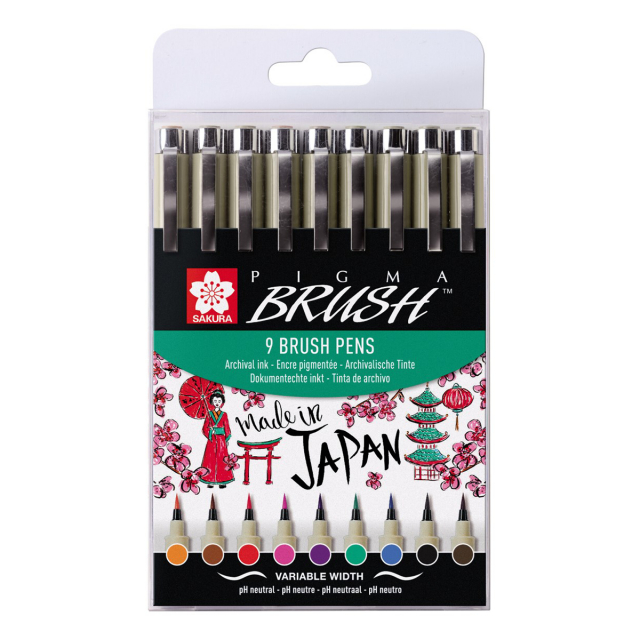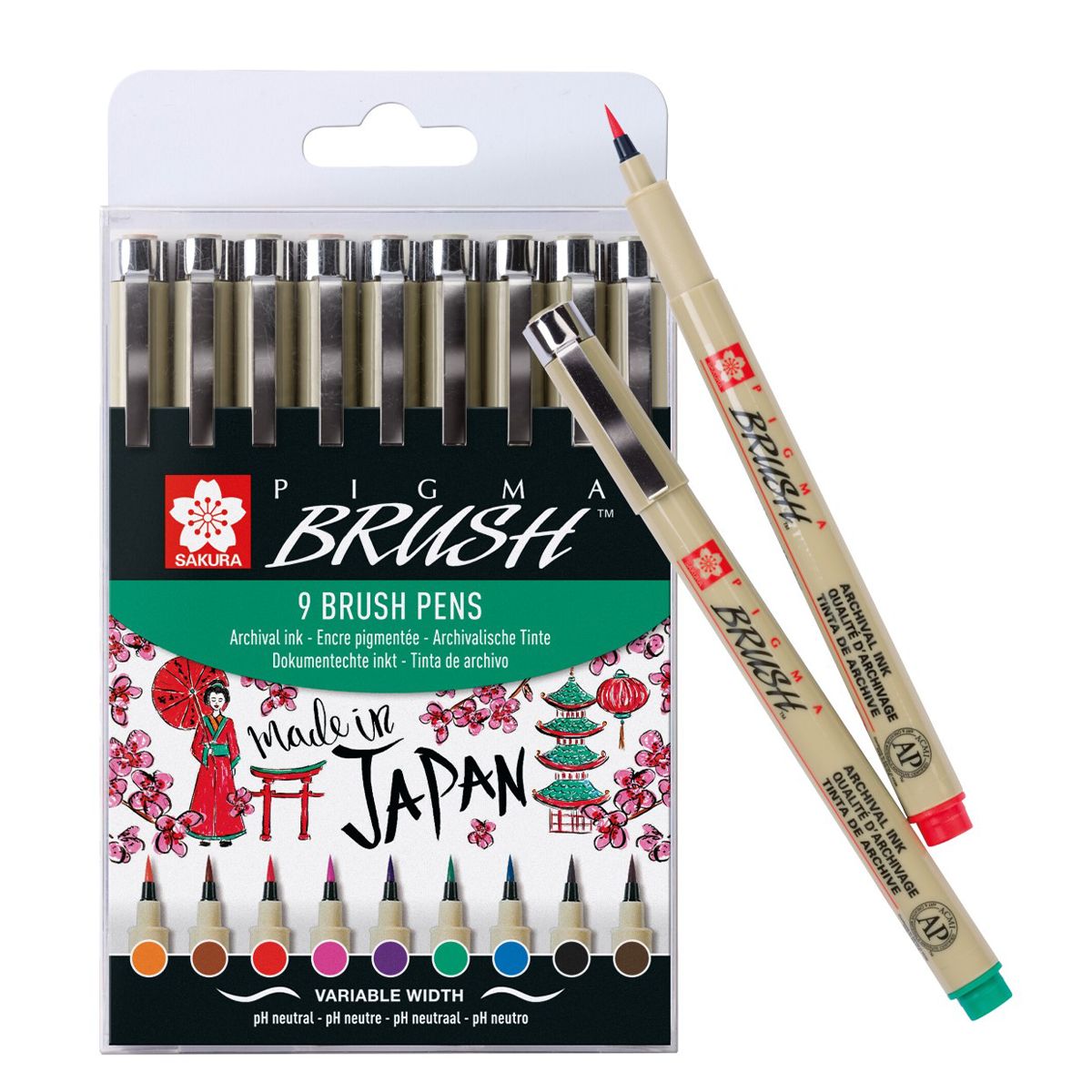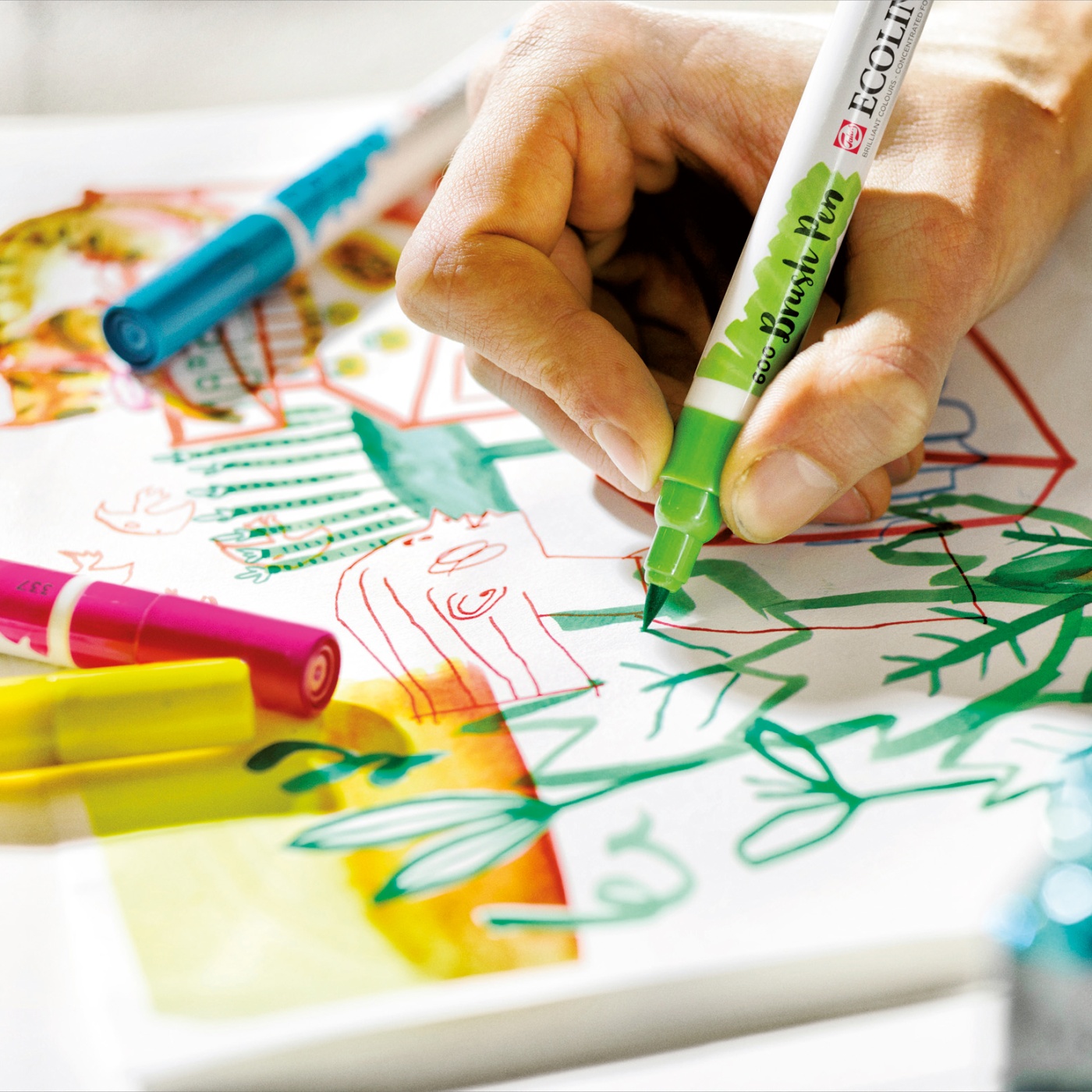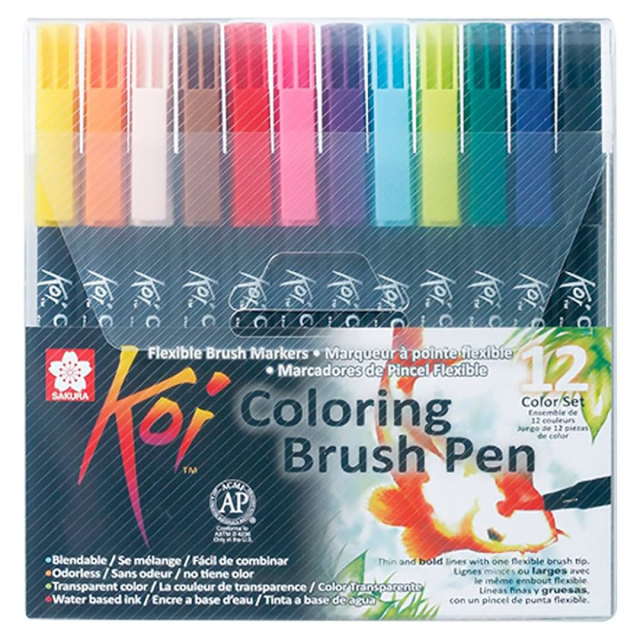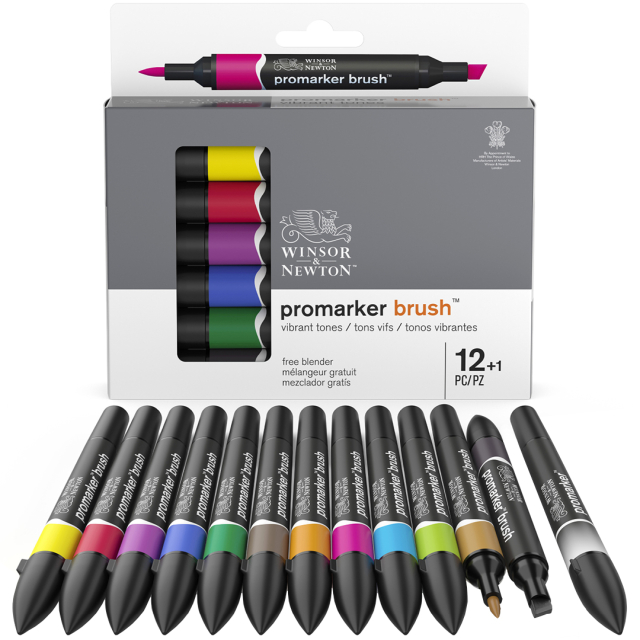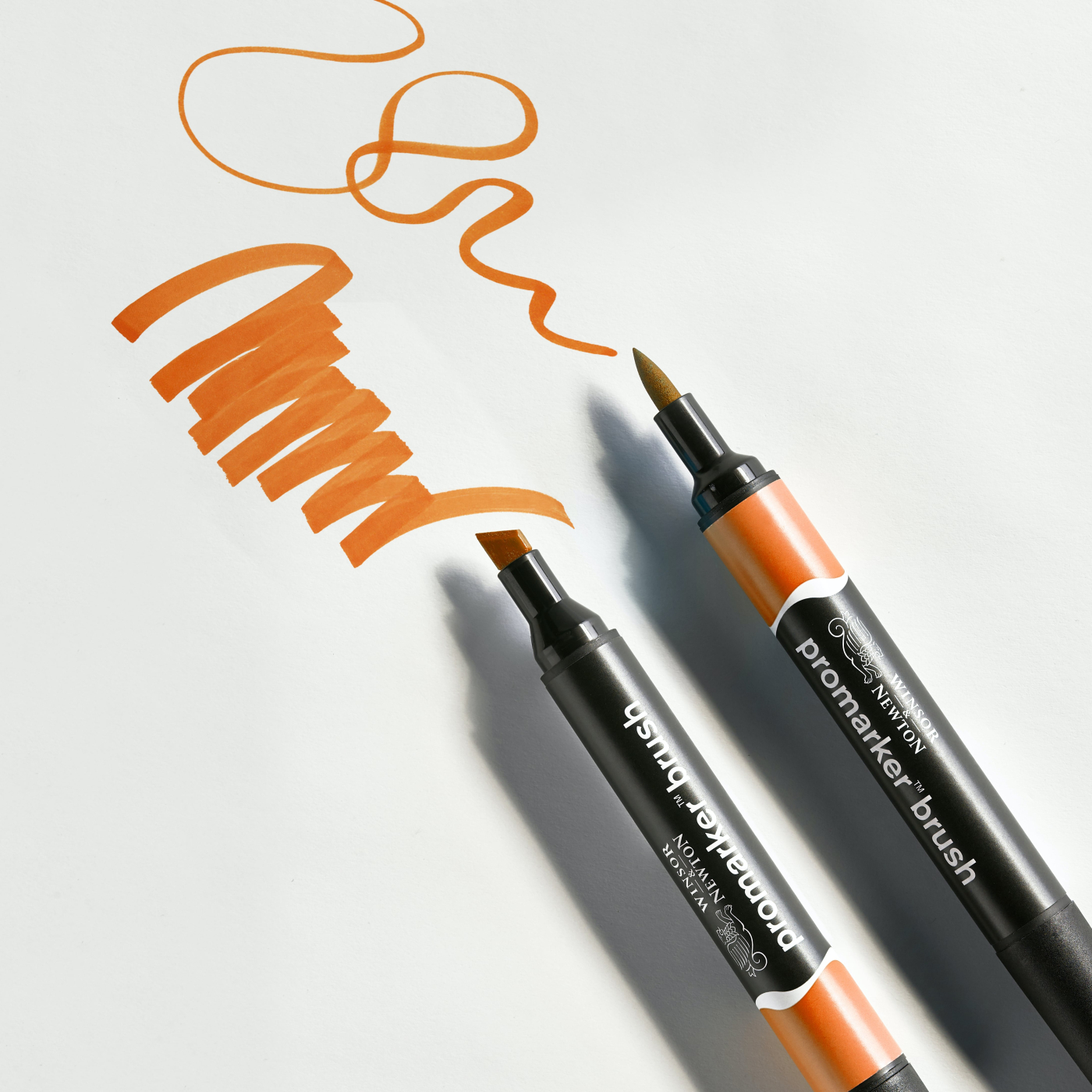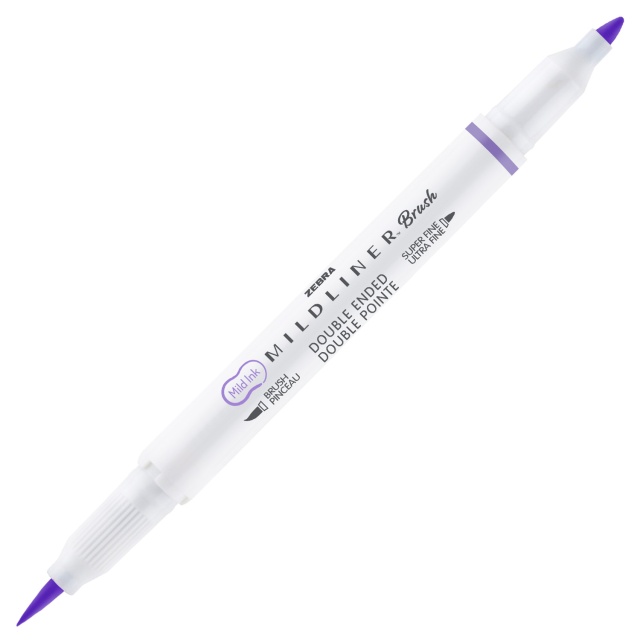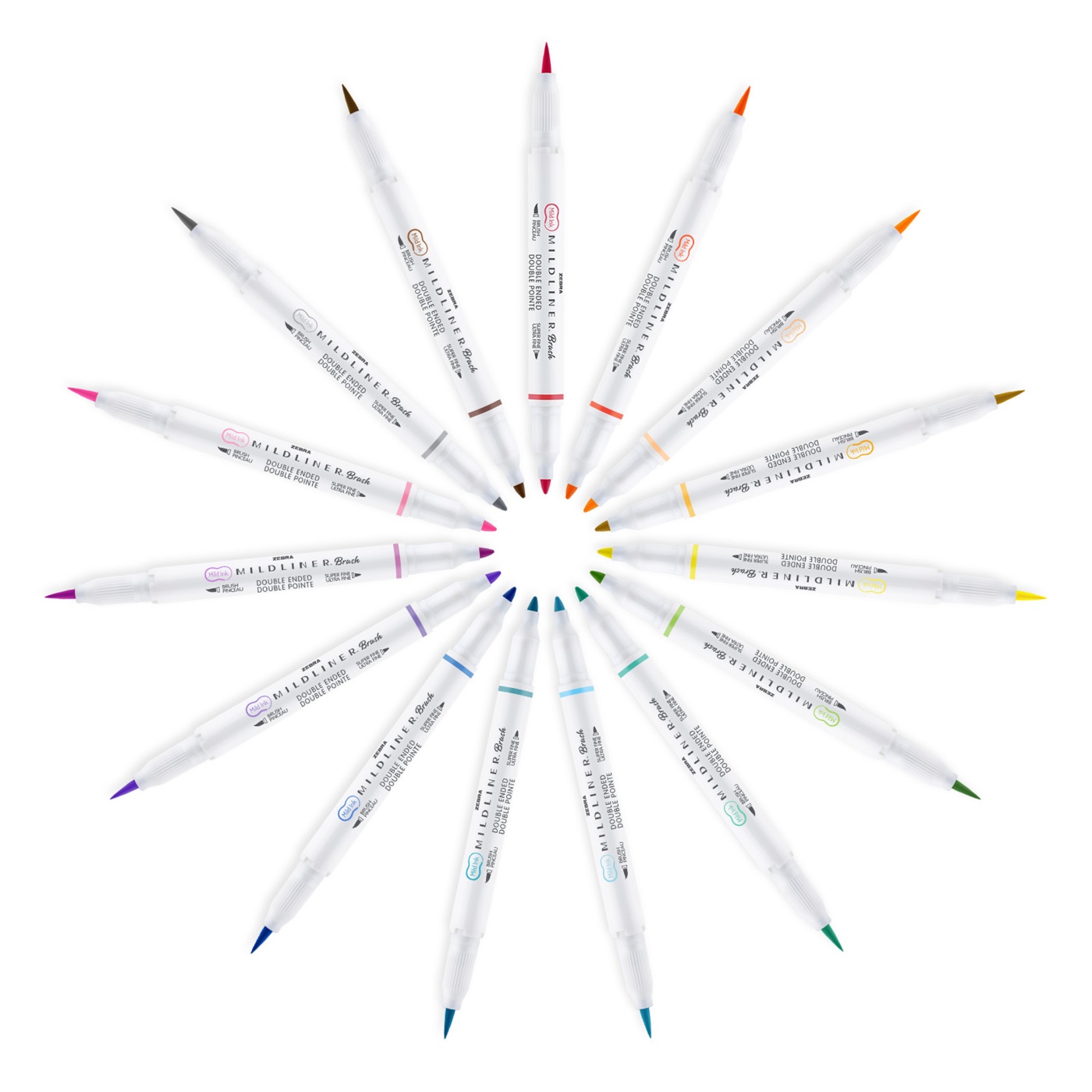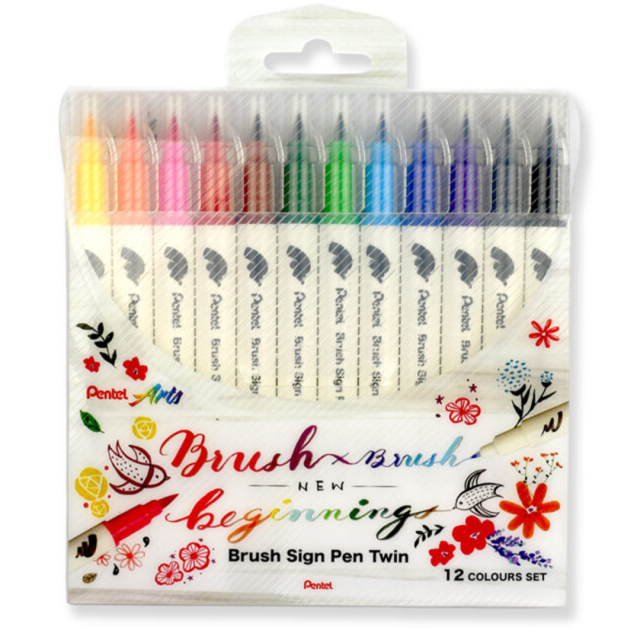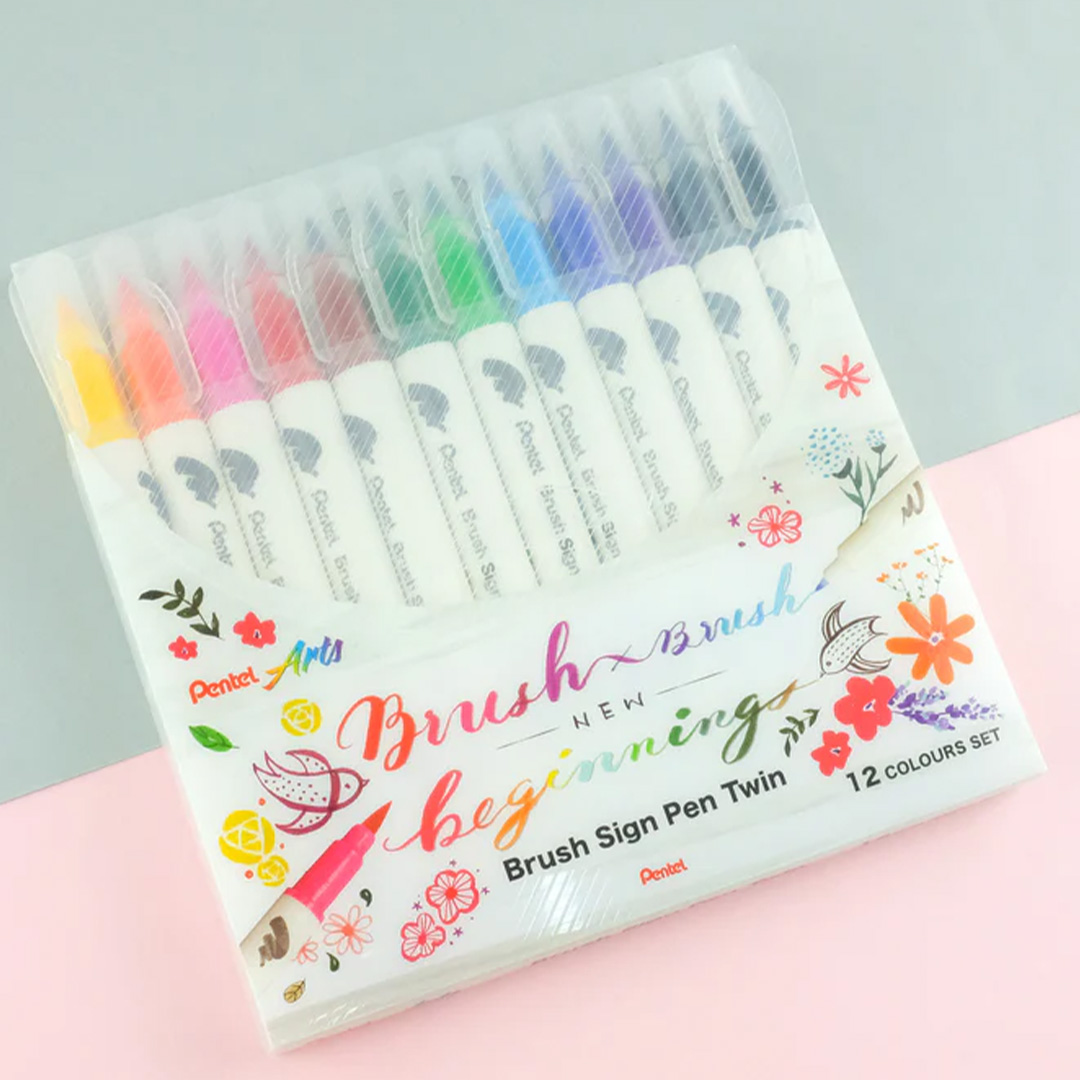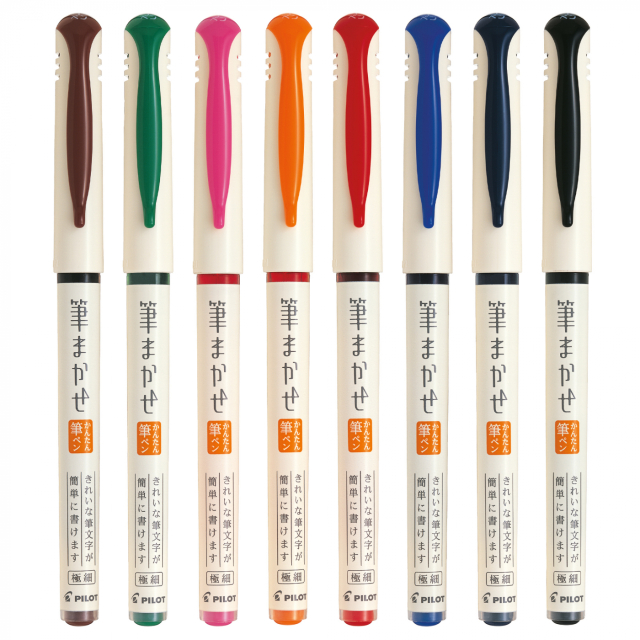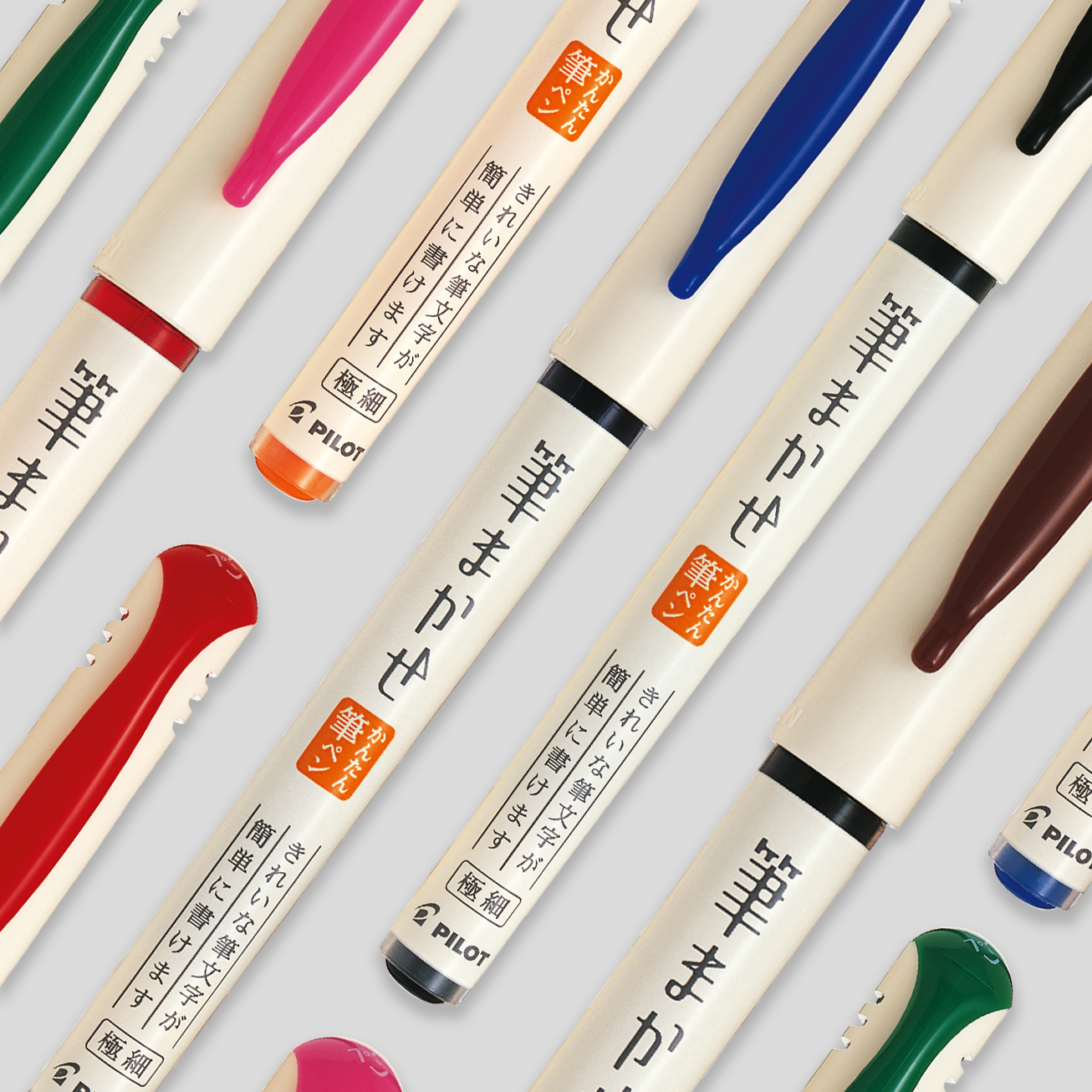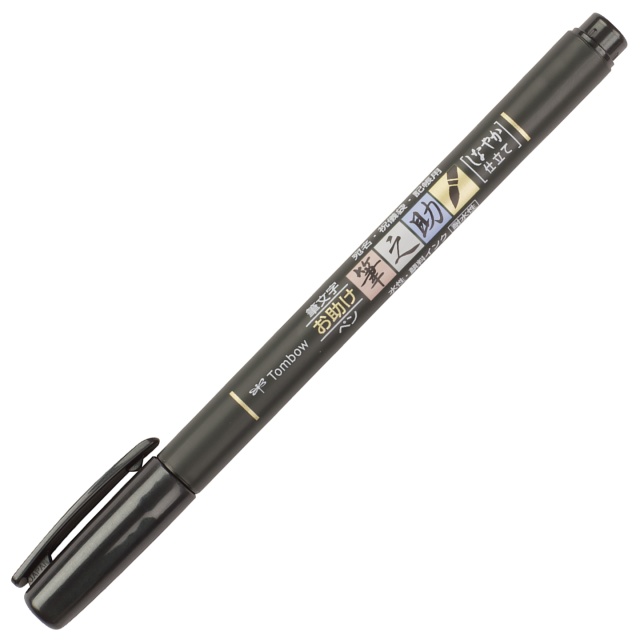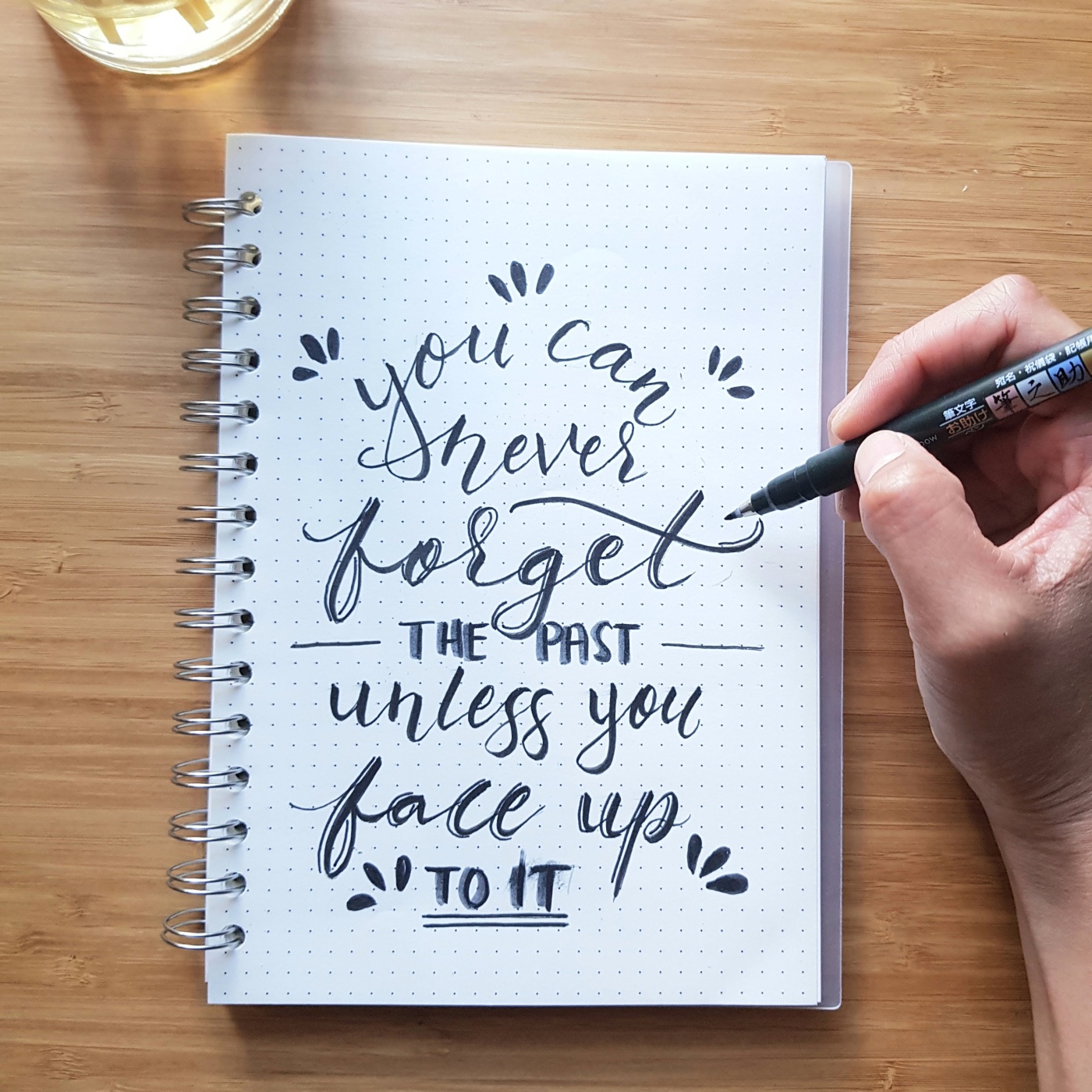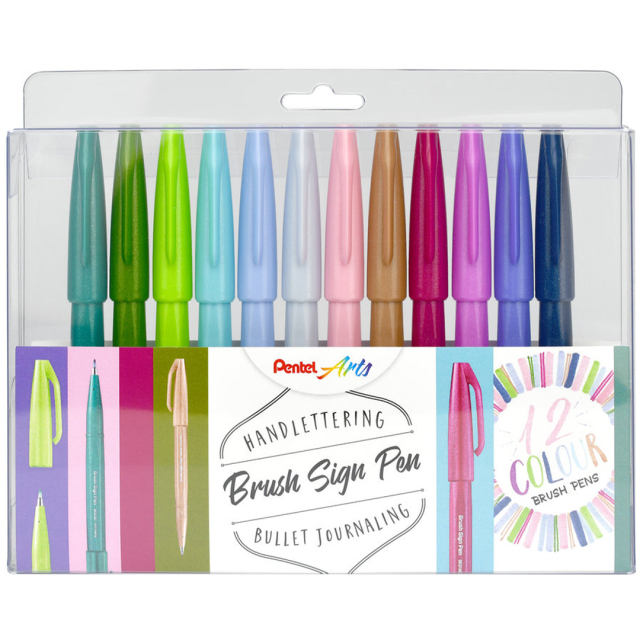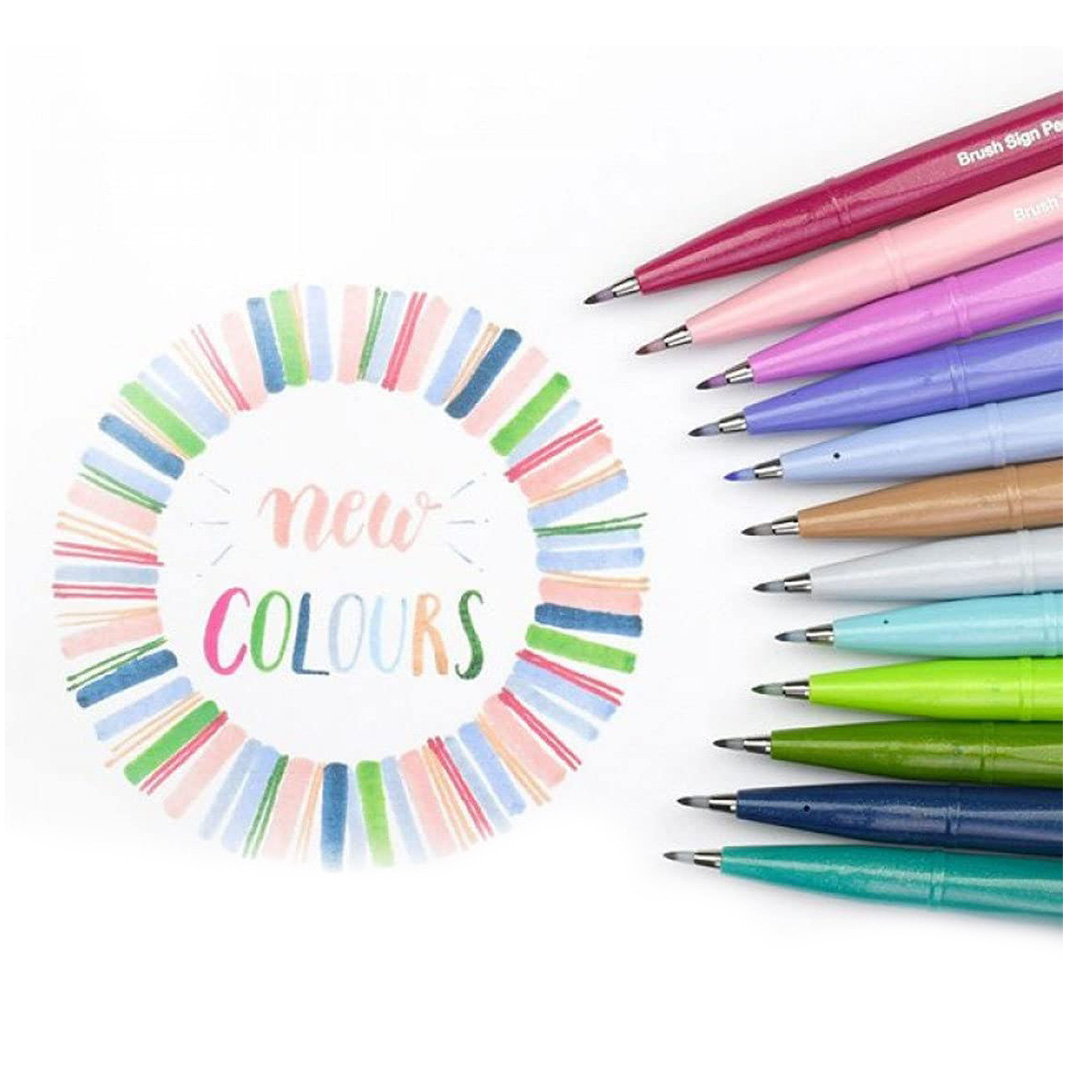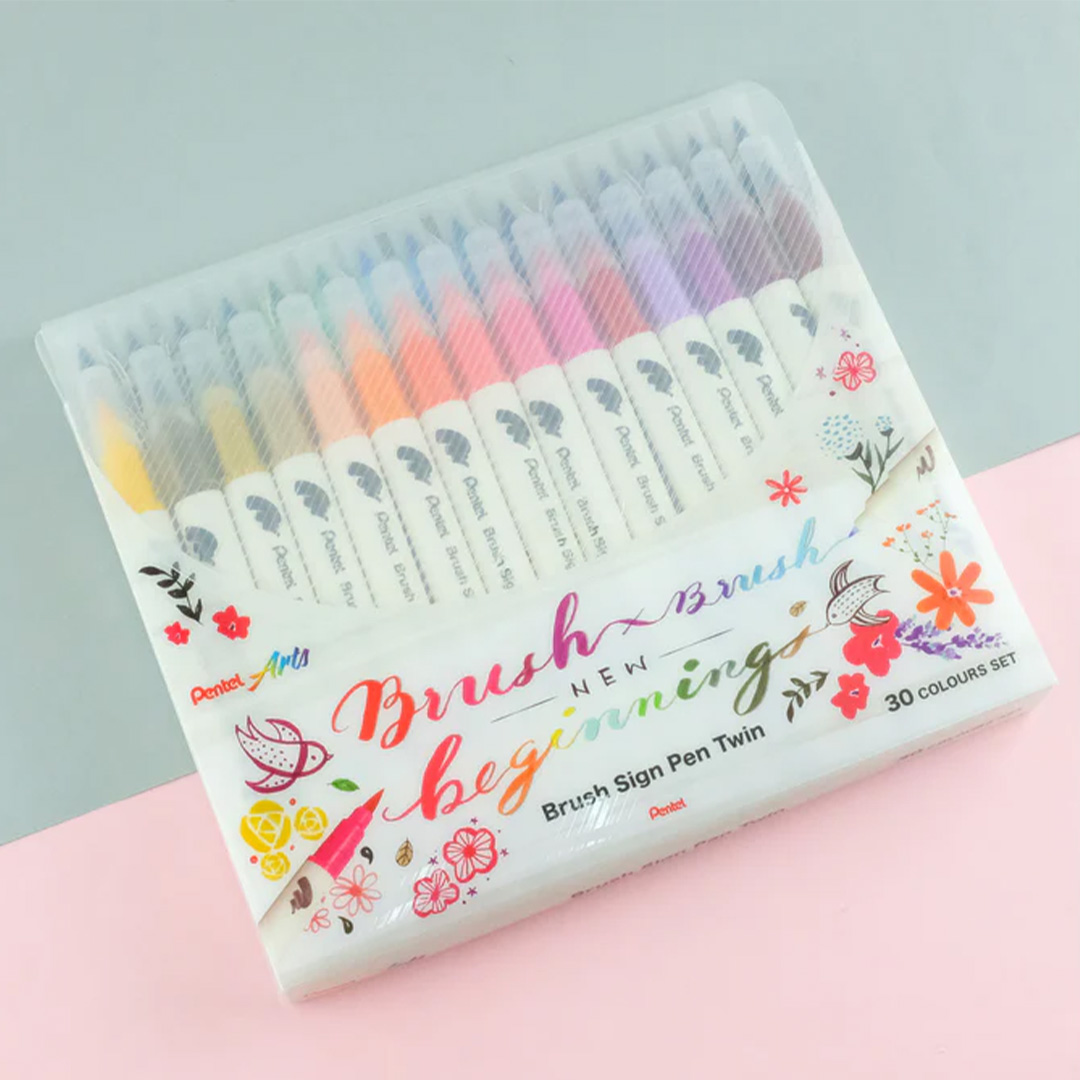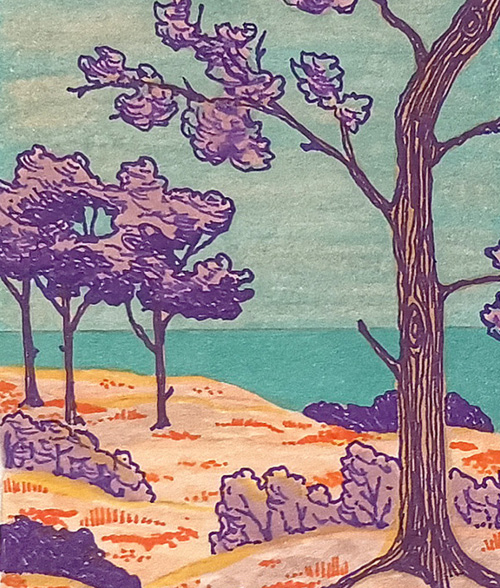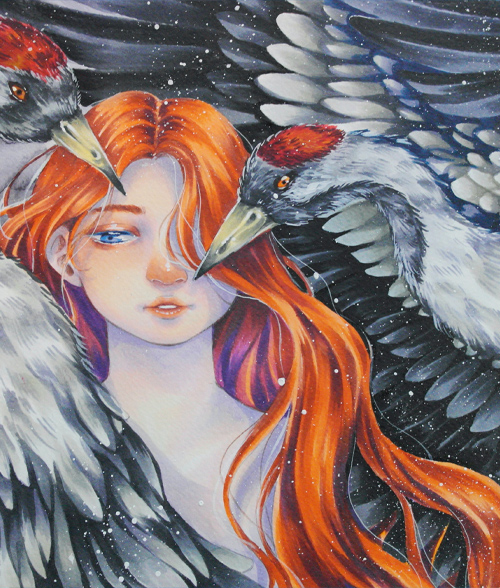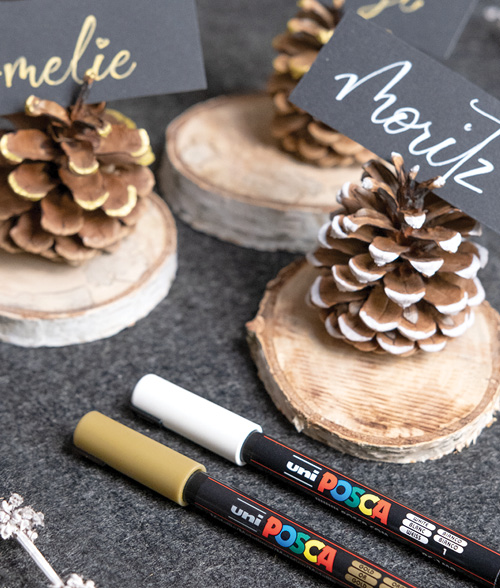A brush pen is, simply put, a pen with a brush tip. When you vary the pressure against the paper, the lines change in thickness. The brush pen is the perfect tool if you want to create elegant letters or illustrations. Trends like bullet journaling and brush lettering have made the brush pen hugely popular in recent years. Maybe it’s time to put down your fineliners or colouring pencils and try something new? When choosing a pen, there are three things you should pay extra attention to: size, flexibility and material.
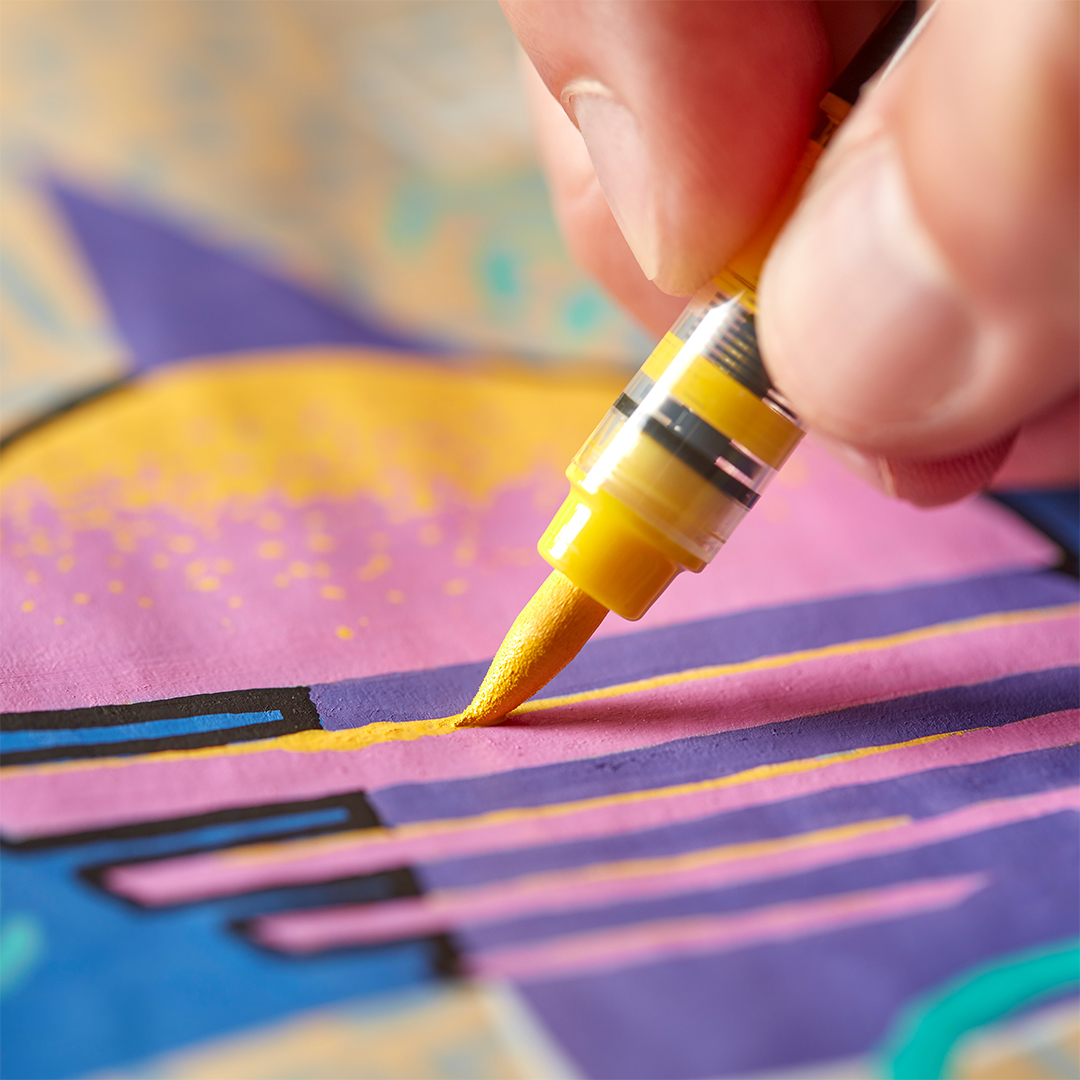
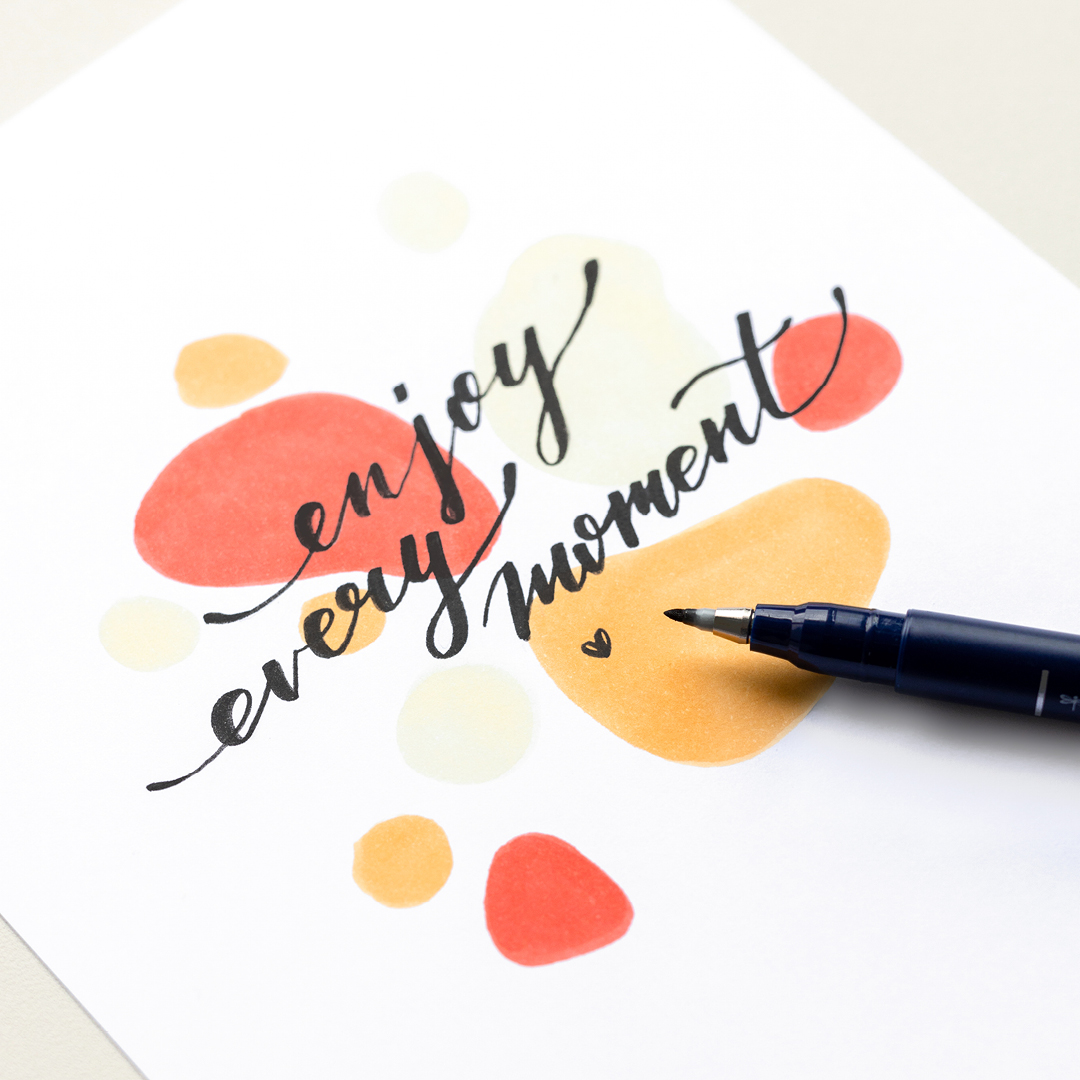
Should you choose a felt or bristle tip?
The tip of a brush pen can be made from different materials. It might be a felt tip attached to the pen, or a bristle tip made from synthetic fibres (often nylon) or natural hair. If you're a beginner, it's a good idea to start with a felt tip brush pen, as they are a bit easier to control.
What’s the difference between soft and firm tips?
Brush pens vary in flexibility. Generally speaking, tips made from bristles are more flexible than felt tips, but even among felt tips there is a lot of variation. Sometimes the product description or name will tell you how flexible the tip is, for example, whether it’s a firm or soft brush tip.
Firm brush tips
A firm brush tip is the easiest to control, making it especially suitable for beginners. Try one of these if you’ve never used a brush pen before:
Soft brush tips
The advantage of a soft tip is that you can achieve a greater variation in line thickness – from thin lines with the very tip to thick strokes using the broader base. If you’re looking for a highly flexible tip, here are some great options:
What brush tip size suits you best?
Just like most other pens, brush pens come in different sizes. If you’re looking to illustrate or paint with a brush pen, a small tip is best for outlines and details, while a larger tip works well for colouring.
Larger brush tips
Larger brush tips are often softer and more flexible, making them ideal for creating sweeping, expressive strokes with lots of variation. They’re particularly suited for larger letters in brush lettering, backgrounds in illustrations, or when you want to paint with broad, dynamic movements.
- Royal Talens Ecoline Brush
- Sakura Koi Coloring Brush Pen
- Promarker Brush
- Zebra Mildliner Brush
- Tombow ABT Dual Brush Pen (Includes both a small and a large tip)
- Pentel Brush Sign Pen Twin (Includes both a small and a large tip)
Smaller brush tips
Small brush tips are the obvious choice when you need precision and control. They’re ideal for detailed work, such as fine lettering, patterns, outlines, or small-scale illustrations. The compact tip makes it easier to work slowly and carefully – perfect when you want control over every line.
- Tombow ABT Dual Brush Pen (Includes both a small and a large tip)
- Pentel Brush Sign Pen Twin (Includes both a small and a large tip)
- Tombow Fudenosuke
- Pentel Brush Sign Pen
- Pilot Fude-Makase Brush Pen
What can I use a brush pen for?
Brush pens can be used for:
- Brush lettering
- Calligraphy
- Illustration
- Colouring
Learning to write with a brush pen can be a bit tricky at first, but don’t give up! It’s all about building muscle memory, so with time it will feel more natural. To get the style and dynamics of brush lettering right, press a little harder on downstrokes and more lightly on upstrokes. You don’t have to write everything in one continuous motion, remember to lift the pen from the paper and rest your hand now and then.
Also, try drawing and painting with a brush pen. Thanks to its flexibility, you can create dynamic illustrations that feel more alive than if you had used, say, a fineliner. Most brush pens use water-based ink, which means they won’t bleed through standard paper (unlike alcohol-based ink). You can even create watercolour-like effects by drawing on a piece of plastic and then using a wet brush to transfer the colour to the paper.
In short, brush pens are versatile in every sense, not just in the tip, but also in what you can use them for. Just place the tip on the paper and start creating!
 United Kingdom (GBP)
United Kingdom (GBP)
